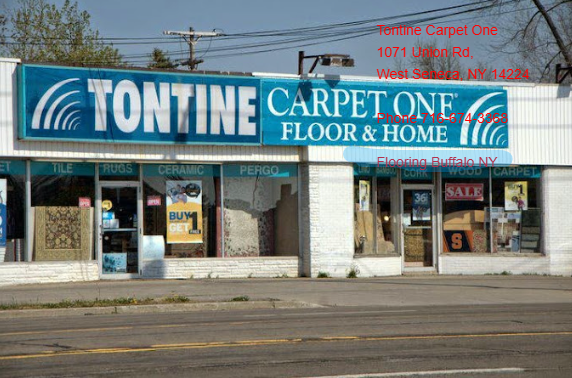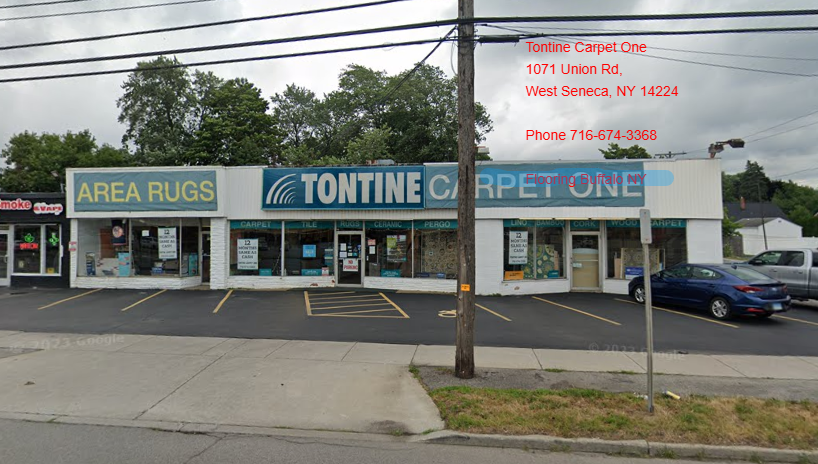Introduction
When we walk by means of a beautifully adorned domestic, our eyes continuously fall upon the carpeting that serves as equally a beginning and a assertion piece. Carpets can raise spaces, imparting heat, convenience, and a classy enchantment. But have you ever ever questioned how carpet patterns evolved over time? From high-priced Persian rugs to fashionable minimalist designs, the journey of carpeting kinds displays societal ameliorations, technological improvements, and evolving tastes.
In this article, we’ll discover The Evolution of Carpeting Styles Over the Years in element. We'll delve into historic context, substances used, design traits, and present day ideas within the carpet marketplace. Whether you are searching for carpets Buffalo NY, Hardwood Flooring Buffalo NY, or conveniently exploring thoughts at your native Buffalo Carpet Store, this text will provide insights into how carpets have remodeled through the years.
The Evolution of Carpeting Styles Over the Years
A Brief History of Carpeting
Carpeting has a rich history relationship returned enormous quantities of years. Initially created for lifelike applications, carpets advanced into decorative art bureaucracy that pondered cultural values and inventions.
Early Beginnings: The Origin of Rugs
- Persian Influence: Persian rugs are some of the oldest popular carpets, dating again to around 500 BC. Their difficult designs oftentimes feature floral motifs and geometric styles. Navajo Weaving: In North America, Native American tribes like the Navajo all started weaving their personal different rugs as early because the 17th century.
These early carpets were no longer handiest realistic but also served as popularity symbols inside of their respective cultures.
The Middle Ages: A Shift in Functionality
As societies built at some stage in the Middle Ages, carpets transitioned from being simply utilitarian to serving as ornamental constituents in castles and church buildings throughout Europe. The use of wealthy shades and elaborate designs was fashionable.
Renaissance to Industrial Revolution: The Rise of Luxury Carpets
Renaissance Flourishes
During the Renaissance period (14th to 17th centuries), European royalty commissioned superb tapestries and carpets for his or her residences. These textiles featured bright colors and depicted scenes from mythology or nature.
Industrial Innovations
The Industrial Revolution within the 18th century marked a giant turning level for carpeting styles:

- Mass Production: With improvements in machinery, carpets might be produced on a larger scale. Synthetic Fibers: The creation of artificial fibers provided durability at minimize rates.
twentieth Century: Diverse Styles Emerge
As we entered the 20 th century, carpeting began to diversify added:
Mid-Century Modern Designs
The mid-century up to date circulation emphasized simplicity and functionality. Carpets along with shag rugs changed into frequent through their textural characteristics.
Post-War Era Trends
After World War II, there has been a surge in suburban living which motivated carpet layout:
- Wall-to-wall carpeting was a staple in lots of properties. Bright colorations like avocado eco-friendly and mustard yellow mirrored favorite subculture all through this period.
Contemporary Trends: Sustainable Practices and Technology
Today’s carpets replicate cutting-edge life style options with an emphasis on sustainability and science:
Eco-Friendly Materials
Many purchasers are actually searching for sustainable suggestions made of recycled resources or healthy fibers. This shift is clear at nearby floor stores like Tontine Carpet One Buffalo NY.
Technological Advancements
Innovations along with stain-resistant treatment plans and stepped forward deploy approaches have made retaining carpets simpler than ever previously.
Materials Used in Carpet Making Through Time
Natural vs Synthetic Fibers: A Comparative Analysis
When discussing carpet materials over the years, it’s needed to understand the two natural and manufactured fibers:
| Material Type | Characteristics | Advantages | Disadvantages | |-------------------|-----------------------------------------------------|-----------------------------------------|-------------------------------------| | Natural Fibers | Wool, cotton, jute | Eco-pleasant; highly-priced believe | Can be high-priced | | Synthetic Fibers | Nylon, polyester | Durable; stain-resistant | Less breathable |
Wool: The Classic Choice
Wool has been respected for its toughness and high-priced texture throughout the time of heritage. It retains warmness effectively and is obviously resistant to filth.
Nylon: A Modern Marvel
Introduced in the mid-20th century, nylon at once grew to become commonly used on account of its resilience in opposition t wear and tear—faultless for high-traffic areas like hallways or residing rooms.
Design Trends Across Different Eras
Victorian Patterns: Opulence Redefined
In Victorian occasions (nineteenth century), ornate styles dominated carpet designs with floral motifs reflecting wealth.
Art Deco Inspirations
Art Deco (1920s) delivered geometric shapes into concentrate—featuring formidable contrasts that also resonate right now.
Influence of Culture on Carpet Design
Cultural Significance
Every tradition has its detailed contribution to carpet making—from Persian motifs celebrating nature to Navajo patterns reflecting storytelling.
Regional Styles
Each place showcases amazing qualities stylish on out there material or usual recommendations—imagine Turkish kilims versus Indian dhurries!
FAQs
1. What are some easy kinds of carpeting?

2. How do I pick a carpet centered on everyday life?
Consider aspects similar to foot site visitors stages! For busy households with pets/teenagers go for durable innovations like nylon or Berber kinds that withstand stains!
3. Are eco-friendly carpets worth it?
Absolutely! They now not simply make a contribution against sustainability yet also can present more beneficial air best reward! Many green brands now have stylish offerings too!
four. How mostly may want to I exchange my carpet?
Typically every 5-10 years depending on usage & repairs! Regular cleansing can extend its existence particularly!
five. What’s trending top now in carpeting patterns?
Current traits emphasize textures—believe shaggy looks paired with impartial hues! Also multi-practical area rugs are fantastically favourite!
6. Can I deploy carpet myself?
While DIY installing is manageable extraordinarily with modular tiles; legitimate setting up ensures perfect results relatively for wall-to-wall fittings!
Conclusion
As https://cristianymwm.bloggersdelight.dk/2025/03/04/choosing-between-carpets-and-hardwood-what-works-best/ we reflect on The Evolution of Carpeting Styles Over the Years, this is transparent that those humble textiles inform stories some distance past aesthetics—they encapsulate cultural identities even though adapting with time's currents! Whether you’re journeying your nearby Buffalo Carpet Store or figuring out between alternatives at Tontine Carpet One Buffalo NY; understanding this evolution enhances appreciation in your alternatives these days!

From typical fibers steeped in custom to ultra-modern synthetic improvements; our connection with ground stays profound! So subsequent time you stroll across your plush living room carpet be counted—it’s extra than just material underfoot—it’s records woven into every thread!